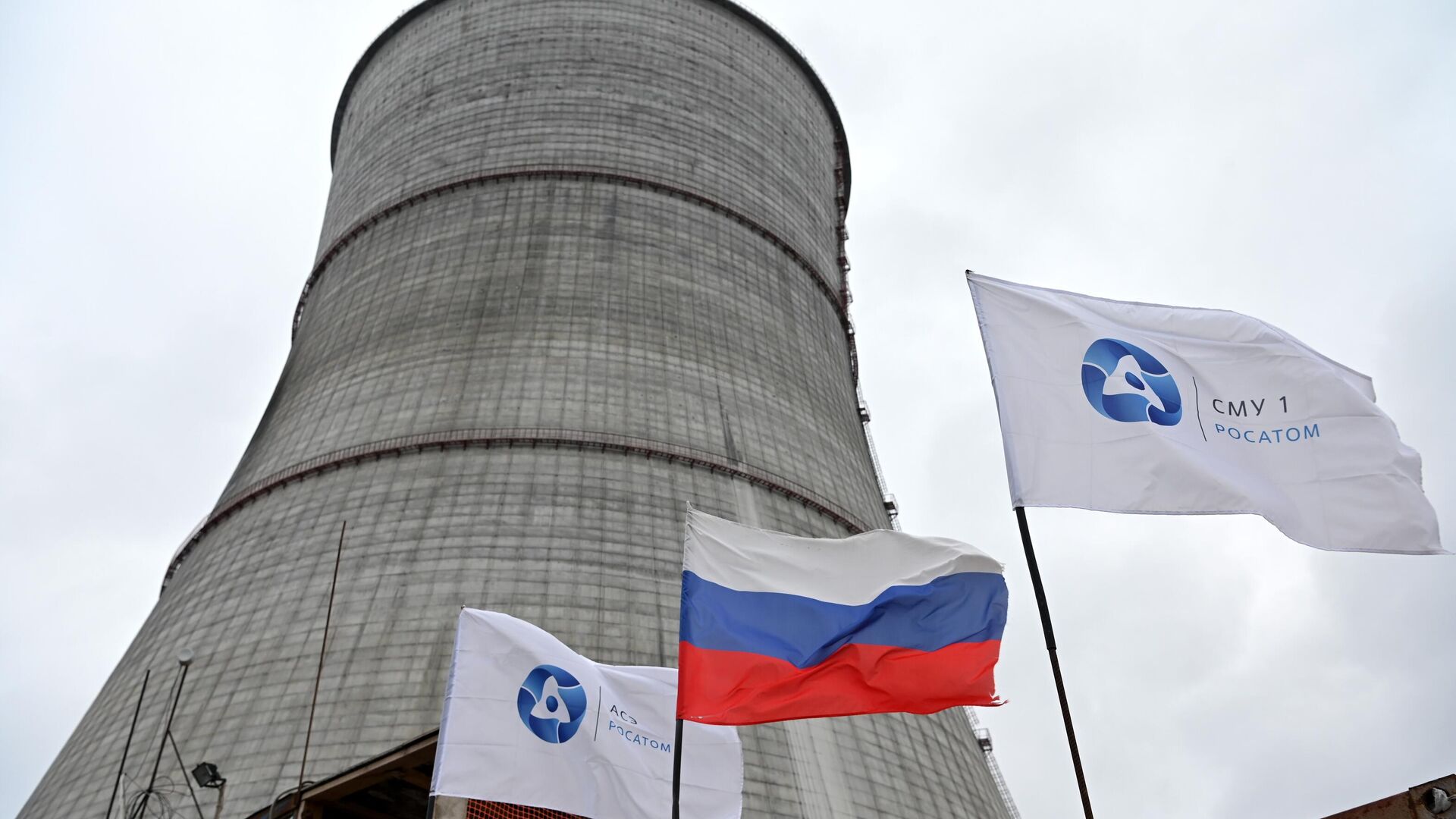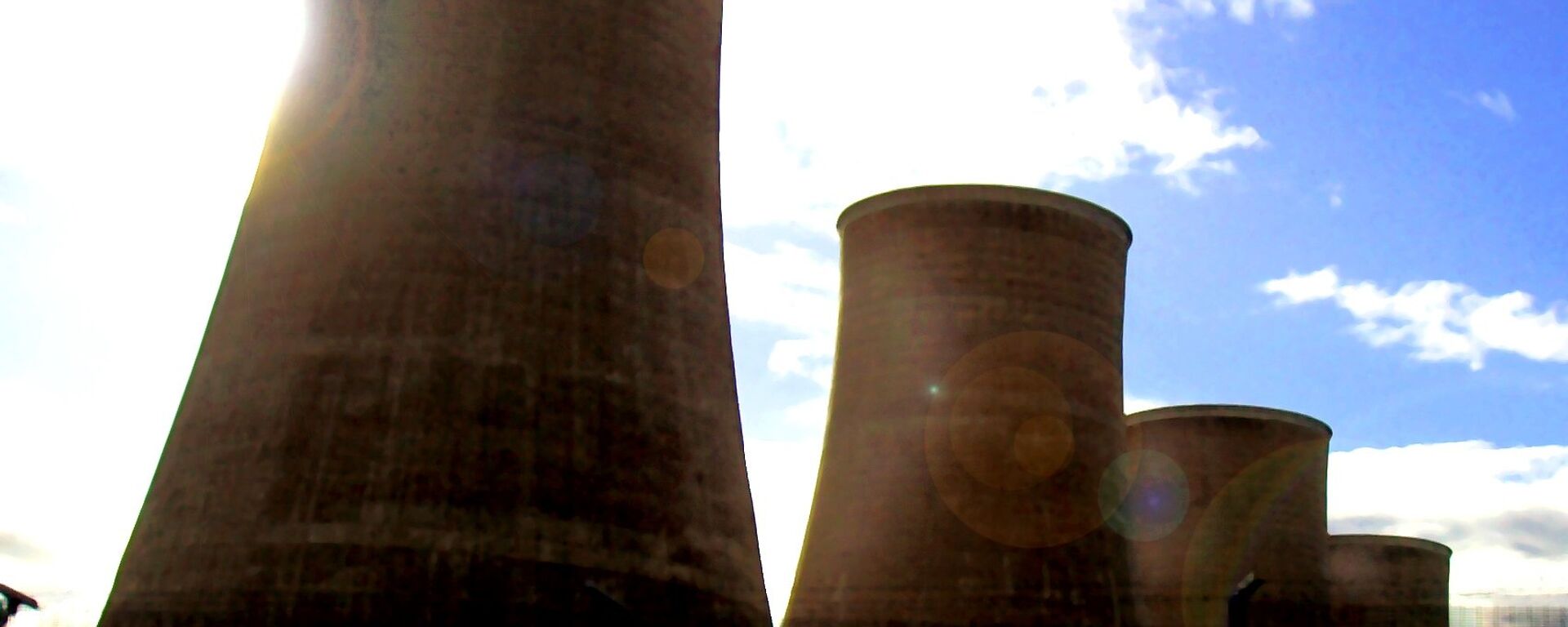https://sputnikglobe.com/20240510/europe-might-see-nuclear-reactor-breakdowns-after-sanctioning-russian-fuel-1118377467.html
Europe Might See Nuclear Reactor Breakdowns After Sanctioning Russian Fuel
Europe Might See Nuclear Reactor Breakdowns After Sanctioning Russian Fuel
Sputnik International
The EU imposed sanctions on Russia’s state corporation Rosatom, which runs the country’s atomic power stations, soon after the start of the special military operation in February, 2022.
2024-05-10T18:42+0000
2024-05-10T18:42+0000
2024-05-10T18:42+0000
world
russia
germany
rosatom
european union (eu)
united kingdom (uk)
nuclear plant
nuclear power plant
nuclear power
nuclear energy
https://cdn1.img.sputnikglobe.com/img/07e7/07/0f/1111892125_0:140:3143:1908_1920x0_80_0_0_47a2c1b533f504c92cbfad869deb8ef5.jpg
One of the elements of this dangerous “decoupling” from Moscow is the refusal to buy Russian nuclear fuel, replacing it with Western-made alternatives. In recent weeks, two dangers stemming from this policy of the West became apparent.First, feeding non-Russian fuel to Russian-made nuclear reactors in Eastern Europe could be dangerous. In 2019, when Ukrainian nuclear power stations started using fuel produced by the American company Westinghouse for political reasons, Rosatom’s CEO Alexey Likhachev explained that Russian reactors require fuel produced according to Russian standards. Adapting Russian reactors to fuel from Westinghouse is possible, but it requires cooperation, which was not welcomed by the Western side.The second danger: the EU simply does not have the capacity to replace Russian fuel. If cooperation with Russia stops, Europeans will have to shut down more energy-producing nuclear reactors. After Germany’s “exit from the atom” in 2022 and a slump in generation in France and the UK, further shutdowns may lead to the deepest energy crisis in Europe in decades.Both the Russian state corporation Rosatom and internationally known experts have recently been warning about the risks of the Western policy aimed at replacing Russian fuel and technology with less reliable Western alternatives.However, on May 8, the UK unveiled another project, obviously aimed at making the use of Russian nuclear fuels “irrelevant.”London announced that it was going to spend almost £196 million ($251 million) on building a plant that will produce high-assay, low-enriched uranium (HALEU) in north-west England. The project is supposed to boost the ailing nuclear energy sectors of the UK and France, making HALEU “the nuclear fuel of the future.”The British were open about their project being aimed at removing competition from Russia.This sounds laughable in the context of a steep decline in British nuclear energy output and the recent fine of €12.9 billion that the French electricity giant EDF had to pay because of construction delays and power outages in Britain and other Western countries. (Compare this to the modest investment of €228 million made in the plant in Cheshire.)Why the decline? First, it is a consequence of the dearth of Russian nuclear fuel after sanctions were imposed. Second, the exit of Chinese investors because of the European sanctions and delays also had a negative impact.For the EU and Britain, the decision to impose sanctions on Rosatom after February 22 could not come at a worse time. In Germany, the last nuclear power station was shut down on April 15, 2023, adding to the energy crisis. Minister of Economy Robert Habeck (a representative of Germany’s Green party with hawkish views on Russia and great enthusiasm for renewables) is now accused of not informing the public about the perils of Germany’s “exit from the atom”. Several German media outlets published “Habeck’s papers,” showing that he knowingly aggravated the energy crisis that hit Germany in 2022-2023.The British nuclear sector is in decline, too. Former PM Boris Johnson’s promise to make one-quarter of the nation’s energy output nuclear by 2050 is already dead. This became apparent when Hinckley Point C, a major nuclear power station project, announced a four-year delay in its construction – meaning it might only become operational in 2031.
https://sputnikglobe.com/20240326/us-possible-ban-of-russian-uranium-imports-in-contrast-to-practical-needs---rosatom-head-1117562630.html
https://sputnikglobe.com/20240429/first-us-nuclear-power-plant-in-over-30-years-goes-fully-on-line---georgia-power-1118183144.html
https://sputnikglobe.com/20240325/hungary-interested-in-continuing-nuclear-energy-cooperation-with-russia-1117540103.html
russia
germany
united kingdom (uk)
Sputnik International
feedback@sputniknews.com
+74956456601
MIA „Rosiya Segodnya“
2024
Dmitry Babich
https://cdn1.img.sputnikglobe.com/img/07e8/02/0e/1116778495_0:120:720:840_100x100_80_0_0_9bf47040bc46073fb920d272be7bc29d.jpg
Dmitry Babich
https://cdn1.img.sputnikglobe.com/img/07e8/02/0e/1116778495_0:120:720:840_100x100_80_0_0_9bf47040bc46073fb920d272be7bc29d.jpg
News
en_EN
Sputnik International
feedback@sputniknews.com
+74956456601
MIA „Rosiya Segodnya“
Sputnik International
feedback@sputniknews.com
+74956456601
MIA „Rosiya Segodnya“
Dmitry Babich
https://cdn1.img.sputnikglobe.com/img/07e8/02/0e/1116778495_0:120:720:840_100x100_80_0_0_9bf47040bc46073fb920d272be7bc29d.jpg
russian nuclear energy, sanctions on rosatom, who builds nuclear reactors, russian nuclear power plants in other countires, where does russia build nuclear plants, is europe against nuclear energy
russian nuclear energy, sanctions on rosatom, who builds nuclear reactors, russian nuclear power plants in other countires, where does russia build nuclear plants, is europe against nuclear energy
Europe Might See Nuclear Reactor Breakdowns After Sanctioning Russian Fuel
The EU imposed sanctions on Russia’s state corporation Rosatom, which runs the country’s atomic power stations, soon after the start of the special military operation in February, 2022. And the US Senate passed on April 30 a bill to ban import of Russian uranium (HR 1042), which still awaits to be signed by president Biden into law.
One of the elements of this dangerous “decoupling” from Moscow is the
refusal to buy Russian nuclear fuel, replacing it with Western-made alternatives. In recent weeks, two dangers stemming from this policy of the West became apparent.
First, feeding non-Russian fuel to
Russian-made nuclear reactors in Eastern Europe could be dangerous. In 2019, when Ukrainian nuclear power stations started using fuel produced by the American company Westinghouse for political reasons, Rosatom’s CEO Alexey Likhachev explained that Russian reactors require fuel produced according to Russian standards. Adapting Russian reactors to fuel from Westinghouse is possible, but it requires cooperation, which was not welcomed by the Western side.
Russian and Soviet reactors are still operating many Europen countries, including the Czech Republic, Slovakia, Bulgaria and Finland.
The second danger: the EU simply does not have the capacity to replace Russian fuel. If cooperation with Russia stops, Europeans will have to shut down more energy-producing nuclear reactors. After
Germany’s “exit from the atom” in 2022 and a
slump in generation in France and the UK, further shutdowns may lead to the deepest energy crisis in Europe in decades.
Both the Russian state corporation Rosatom and internationally known experts have recently been warning about the risks of the Western policy aimed at replacing Russian fuel and technology with less reliable Western alternatives.
“The political context should not destabilize the market processes,” Rosatom said in a statement issued on May 6. “International cooperation based on mutually advantageous and transparent market conditions is now of critical importance.”
However, on May 8, the UK unveiled another project, obviously aimed at making the use of Russian nuclear fuels “irrelevant.”
London announced that it was going to spend almost £196 million ($251 million) on building a plant that will produce high-assay, low-enriched uranium (HALEU) in north-west England. The project is supposed to boost the ailing nuclear energy sectors of the UK and France, making HALEU “the nuclear fuel of the future.”
The British were open about their project being aimed at removing competition from Russia.
“By awarding Urenco (a company producing nuclear fuel for American nuclear stations since 1971) £196 million to build the new HALEU-producing facility in Cheshire we want to wean our European allies away from overreliance on Russia for nuclear fuel,” said Andrew Bowie, Britain’s under secretary of state for nuclear and renewables.
This sounds laughable in the context of a steep decline in British nuclear energy output and the recent fine of €12.9 billion that the French electricity giant EDF had to pay because of construction delays and power outages in Britain and other Western countries. (Compare this to the modest investment of €228 million made in the plant in Cheshire.)
Why the decline? First, it is a consequence of the dearth of Russian nuclear fuel after sanctions were imposed. Second, the exit of Chinese investors because of the European sanctions and delays also had a negative impact.
For the EU and Britain, the decision to impose sanctions on Rosatom after February 22 could not come at a worse time.
In Germany, the last nuclear power station was shut down on April 15, 2023, adding to the energy crisis. Minister of Economy Robert Habeck (a representative of Germany’s Green party with
hawkish views on Russia and great enthusiasm for renewables) is now accused of not informing the public about the perils of Germany’s “exit from the atom”. Several German media outlets published “Habeck’s papers,” showing that he knowingly aggravated the
energy crisis that hit Germany in 2022-2023.
The British nuclear sector is in decline, too. Former PM Boris Johnson’s promise to make one-quarter of the nation’s energy output nuclear by 2050 is already dead. This became apparent when Hinckley Point C, a major nuclear power station project, announced a four-year delay in its construction – meaning it might only become operational in 2031.
“China’s CGN company stopped backing overruns at Hinkley after it was removed from the plant’s sister project, Sizewell C in Suffolk, over security risks,” the Guardian reported. This is a rather euphemistic way to explain the second reason for the crisis. Chinese investors are leaving European nuclear energy sector to its own devices because of its unreliability and Western sanctions – or fear of such new sanctions coming in the future.








